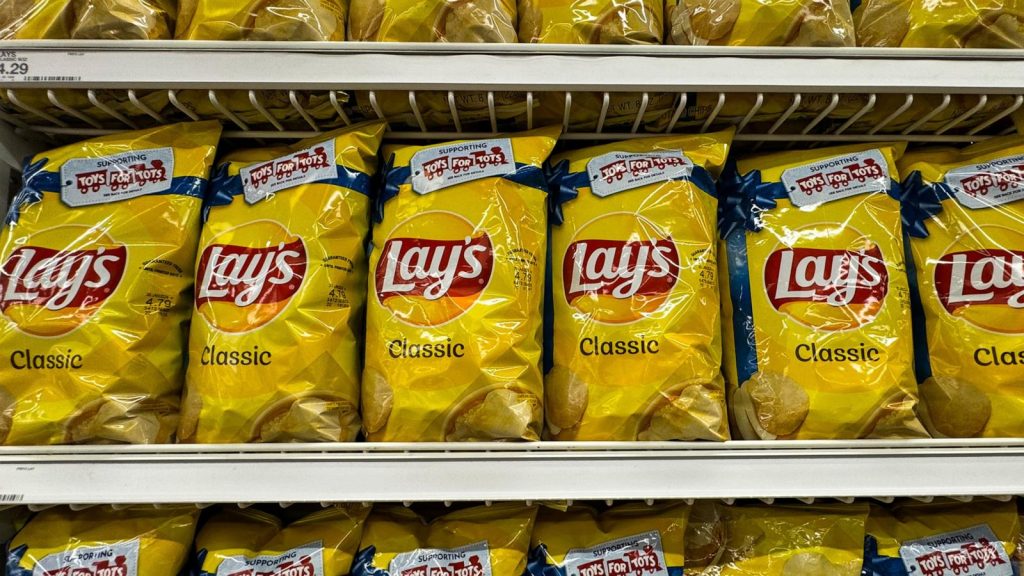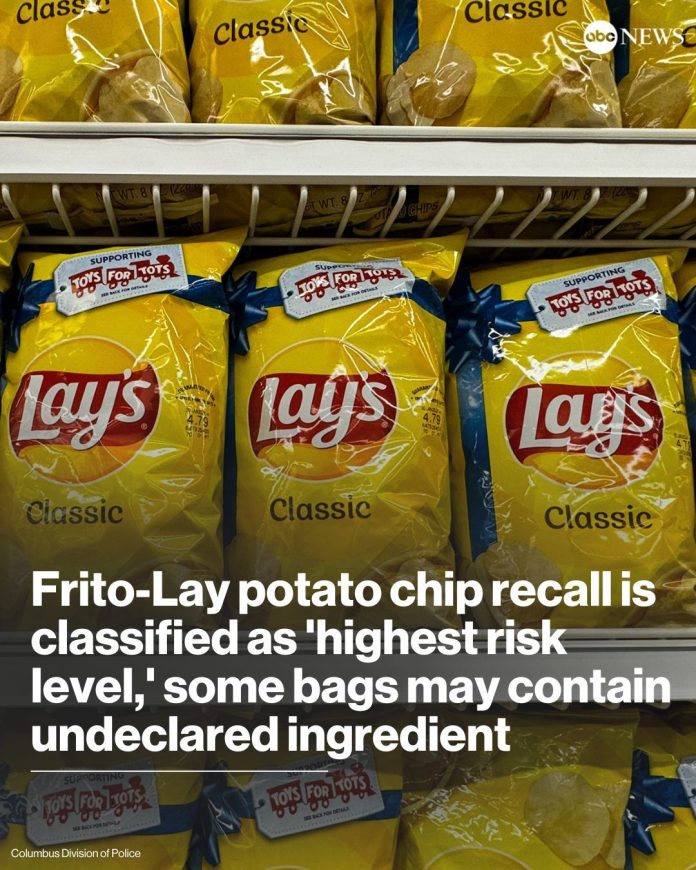Frito-Lay has announced a voluntary recall of a specific batch of its Lay’s Classic Potato Chips due to the possible presence of an undeclared milk ingredient. The recall was initiated as a precautionary measure after a consumer complaint led to the discovery of the issue. The affected chips were distributed in certain regions and could pose a serious risk to individuals with milk allergies or severe lactose intolerance.
Details of the Recall
The recall involves 13-ounce bags of Lay’s Classic Potato Chips that were sold in select retail stores and through online platforms in Oregon and Washington. The affected products have a “Guaranteed Fresh” date of February 11, 2025, and can be identified by the UPC code 28400 31041. Additionally, these packages bear manufacturing codes 6462307xx or 6463307xx, which can be found near the expiration date.

It’s important to note that no other Lay’s products, including different flavors, sizes, or variety packs, are impacted by this recall. The issue is limited to this specific batch, and Frito-Lay has taken swift action to remove the affected products from shelves.
Health Risks Associated with the Issue
For individuals with dairy allergies or lactose intolerance, consuming a product that contains an undeclared milk ingredient can lead to serious health complications. Symptoms can range from mild reactions, such as skin rashes and digestive discomfort, to severe allergic responses, including difficulty breathing and anaphylaxis.
The U.S. Food and Drug Administration (FDA) has classified this recall as a Class I recall, which indicates that consuming the product could potentially cause serious health consequences. While no illnesses have been reported as of now, Frito-Lay is urging consumers who may have purchased the affected chips to dispose of them immediately.
What Consumers Should Do
Anyone who has purchased the recalled product and has a milk allergy or lactose sensitivity should not consume the chips. Instead, the company advises consumers to discard the product or return it to the store where it was purchased for a full refund.
For additional information or concerns regarding the recall, Frito-Lay has set up a consumer hotline. Customers can reach Frito-Lay Consumer Relations at (800) 352-4477, Monday through Friday, between 9:00 a.m. and 4:30 p.m. CST.
Importance of Allergen Labeling
This recall highlights the crucial role that accurate labeling plays in food safety. Undeclared allergens are a significant concern for millions of people who rely on ingredient lists to make safe food choices. The FDA and food manufacturers have strict regulations in place to prevent such issues, but occasional oversights can still occur.
Over the years, cases of undeclared allergens have led to a growing number of food recalls. Manufacturers are encouraged to implement rigorous quality control measures, including improved ingredient verification processes, to prevent similar incidents in the future.

Food Safety Measures and Consumer Awareness
To ensure consumer safety, food companies must adhere to strict guidelines regarding ingredient disclosure and contamination prevention. Regular testing, clear labeling, and thorough inspections help reduce the risk of undeclared allergens making their way into products.
Consumers, on the other hand, should remain vigilant by checking product labels and staying informed about food recalls. Anyone with known allergies should also consider using mobile apps or online resources that track recalls and allergen alerts.
Final Thoughts
Frito-Lay’s recall serves as a reminder of the importance of food safety protocols and the need for continuous improvements in labeling practices. While no illnesses have been reported, the company’s proactive approach in addressing the issue helps ensure the well-being of its customers.
For those without milk allergies, the recalled product poses no health risks, but for those affected, it’s essential to take the necessary precautions. Staying informed about food recalls and practicing caution when consuming packaged foods can help individuals avoid potentially dangerous allergic reactions.

















